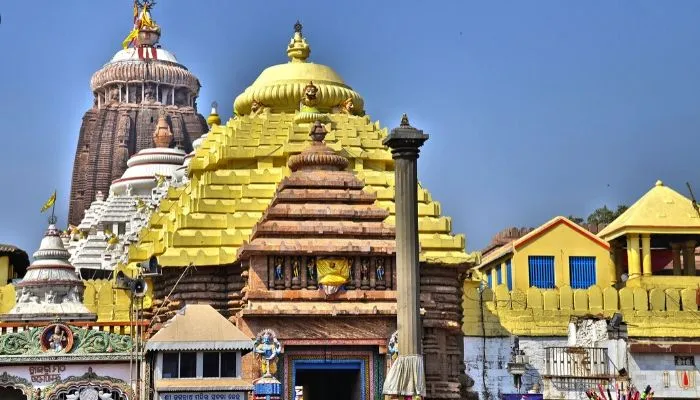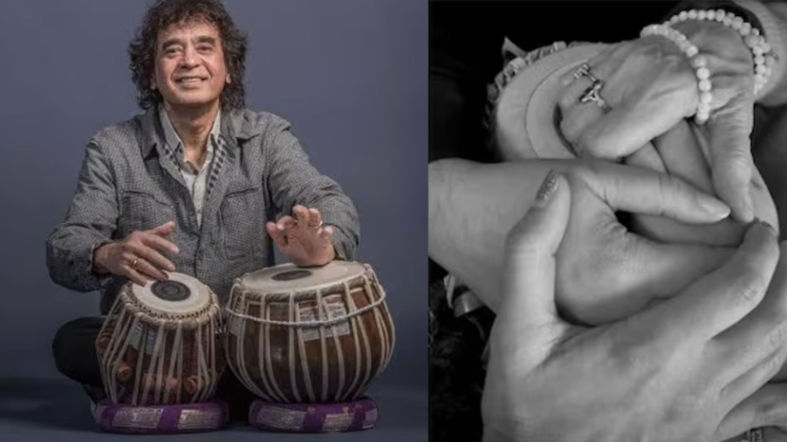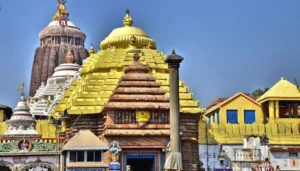Lord Jagannath is a highly revered deity in Hinduism, particularly worshipped in Odisha, India. He is considered an incarnation of Lord Vishnu and is closely associated with the Jagannath Temple in Puri, one of the Char Dham pilgrimage sites. The name “Jagannath” translates to “Lord of the Universe”.
Key Aspects of Lord Jagannath
Iconography: The idols of Lord Jagannath, along with his siblings Balabhadra (Balarama) and Subhadra, are distinct in form, featuring large, round eyes and stumps for hands and legs, which is unlike typical representations of Hindu gods.
Rath Yatra: One of the most significant festivals associated with Lord Jagannath is the Rath Yatra (Chariot Festival). During this event, the deities are placed on massive chariots and pulled through the streets by devotees. This annual festival attracts millions of pilgrims and tourists from around the world.
Inclusiveness: The worship of Lord Jagannath is known for its inclusivity, allowing devotees from all walks of life, irrespective of caste, creed, or social status, to participate in the rituals and festivals. This symbolizes unity and universality.
Overall, Lord Jagannath is not only central to the religious landscape of Odisha but also a symbol of the region’s cultural heritage and spiritual ethos.
Origin of Lord Jagannath
The origin of Lord Jagannath is deeply rooted in mythology, history, and cultural traditions of Odisha, India.
Vedic and Puranic Connections:
- Lord Jagannath is considered a form of Lord Vishnu, often linked to Krishna, an avatar of Vishnu, in Vedic texts.
- Ancient scriptures like the Skanda Purana and Brahma Purana mention Lord Jagannath, recounting the divine story of his manifestation and association with Krishna and Balarama.
Legend of King Indradyumna:
- King Indradyumna of Malwa, a devout follower of Vishnu, dreamed that Vishnu instructed him to build a temple and find the divine wooden idols.
- Guided by this vision, he traveled to Puri, where he found a piece of wood floating in the sea. Vishwakarma, the divine architect, disguised himself and agreed to carve the idols, on the condition of not being disturbed. The king, however, opened the door before the work was finished, resulting in the unique form of the deities with unfinished hands and legs.
Historical and Cultural Origins
Tribal Influence:
- Scholars suggest that Jagannath worship evolved from ancient tribal traditions of Odisha, particularly from the Sabara tribe’s deity Neela Madhava.
- The discovery of Neela Madhava by Vidyapati, a Brahmin priest, who then informed King Indradyumna, is a key narrative.
Integration with Vaishnavism:
- Over time, the worship of Lord Jagannath integrated with mainstream Vaishnavism, especially through the efforts of saint-poets like Adi Shankaracharya and Ramanuja, who reinforced his association with Vishnu/Krishna.
Jagannath Temple in Puri:
- The current temple in Puri was built in the 12th century by King Anantavarman Chodaganga Deva of the Eastern Ganga dynasty, becoming a major pilgrimage site that symbolizes cultural and religious synthesis.
Rath Yatra Festival:
- The annual Rath Yatra (Chariot Festival) symbolizes the journey of the deities from the temple to the Gundicha Temple, representing their union with devotees.
Syncretic Nature of Jagannath Worship:
- The worship of Lord Jagannath blends various religious traditions, including tribal, Vedic, and Puranic elements, emphasizing inclusivity and universality, with broad participation in rituals and festivals.
In summary, the origin of Lord Jagannath is a blend of epics tales, historical events, and cultural practices, making him a deity that embodies the spiritual and cultural essence of Odisha and beyond.














